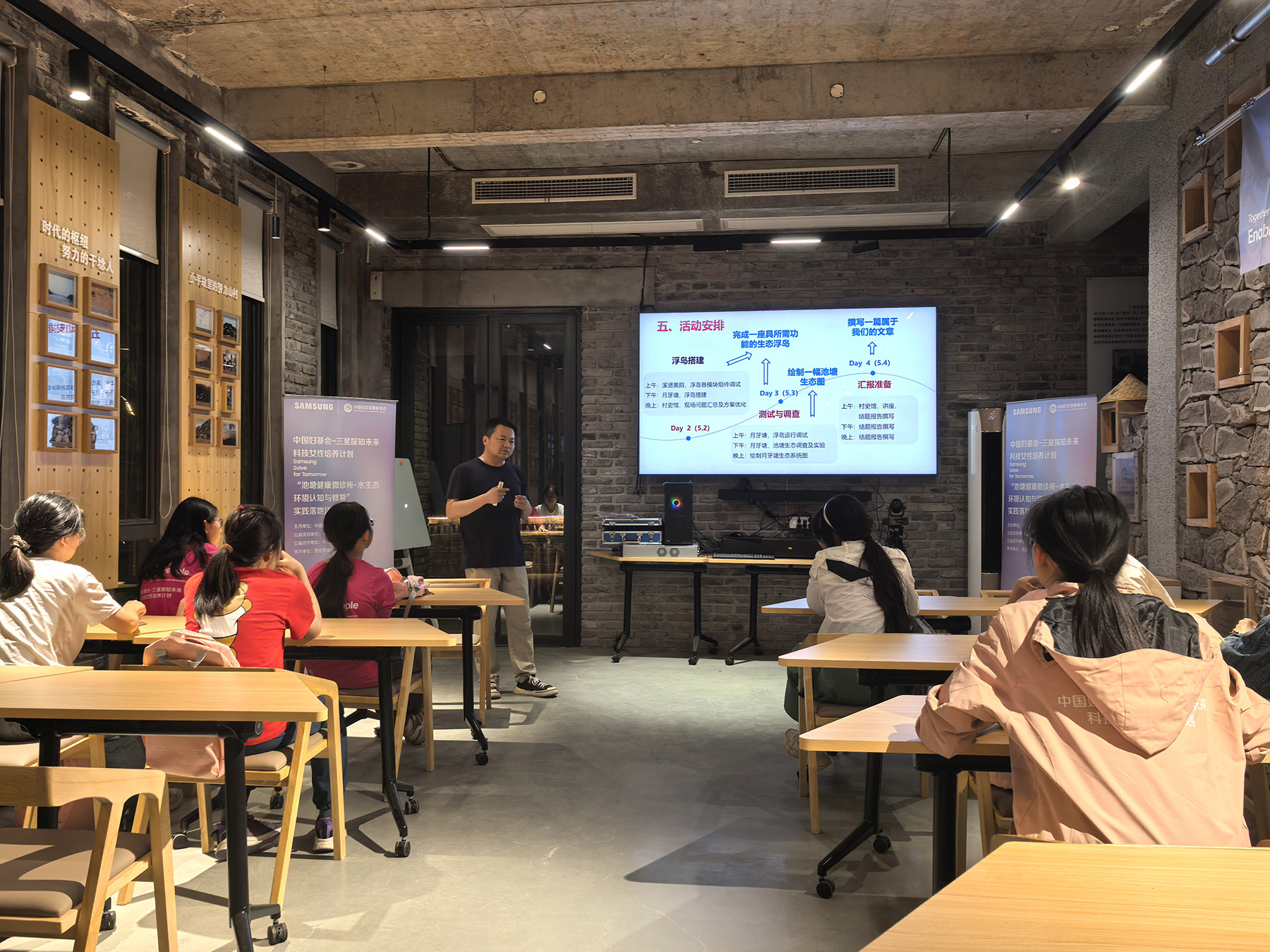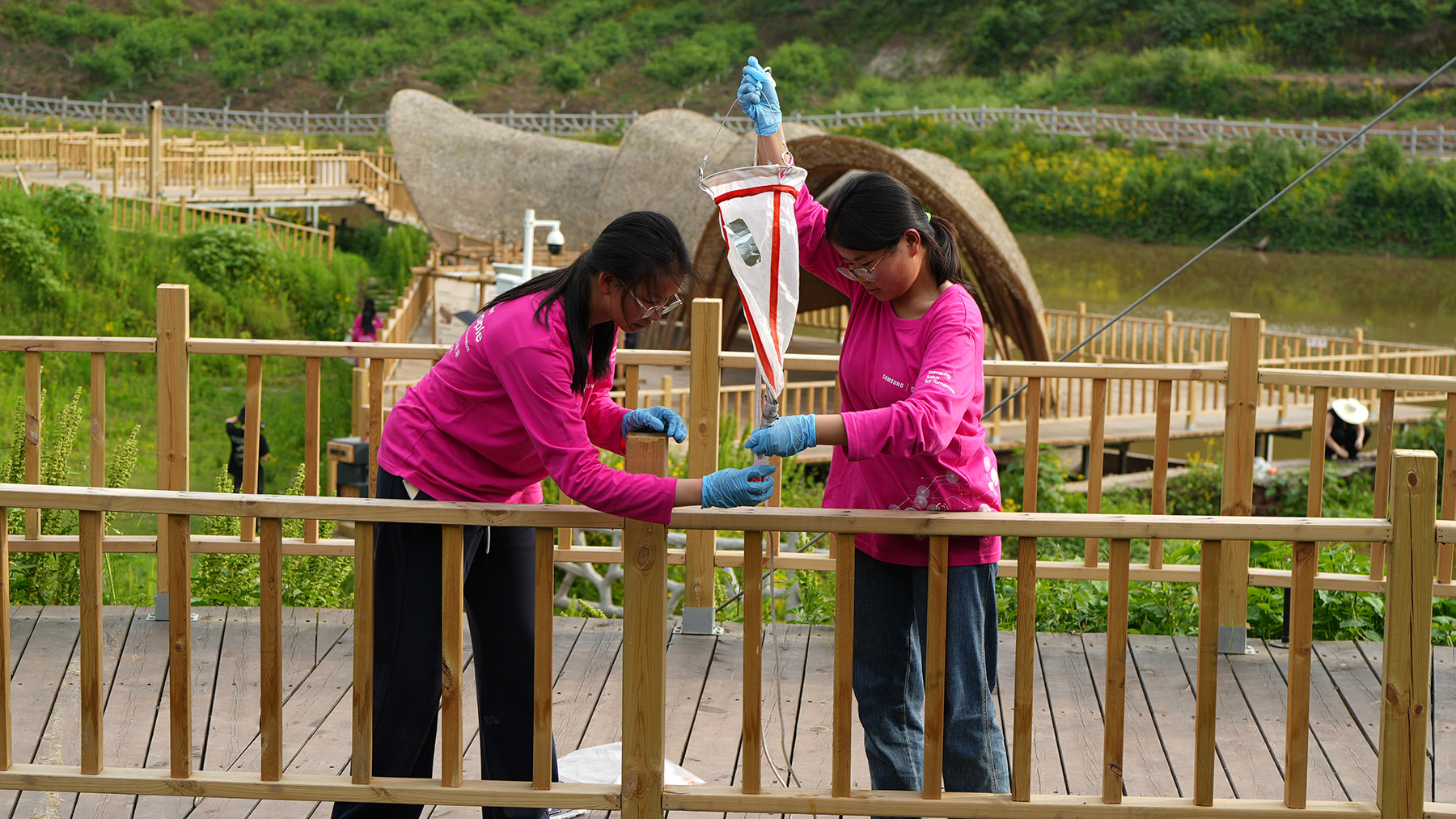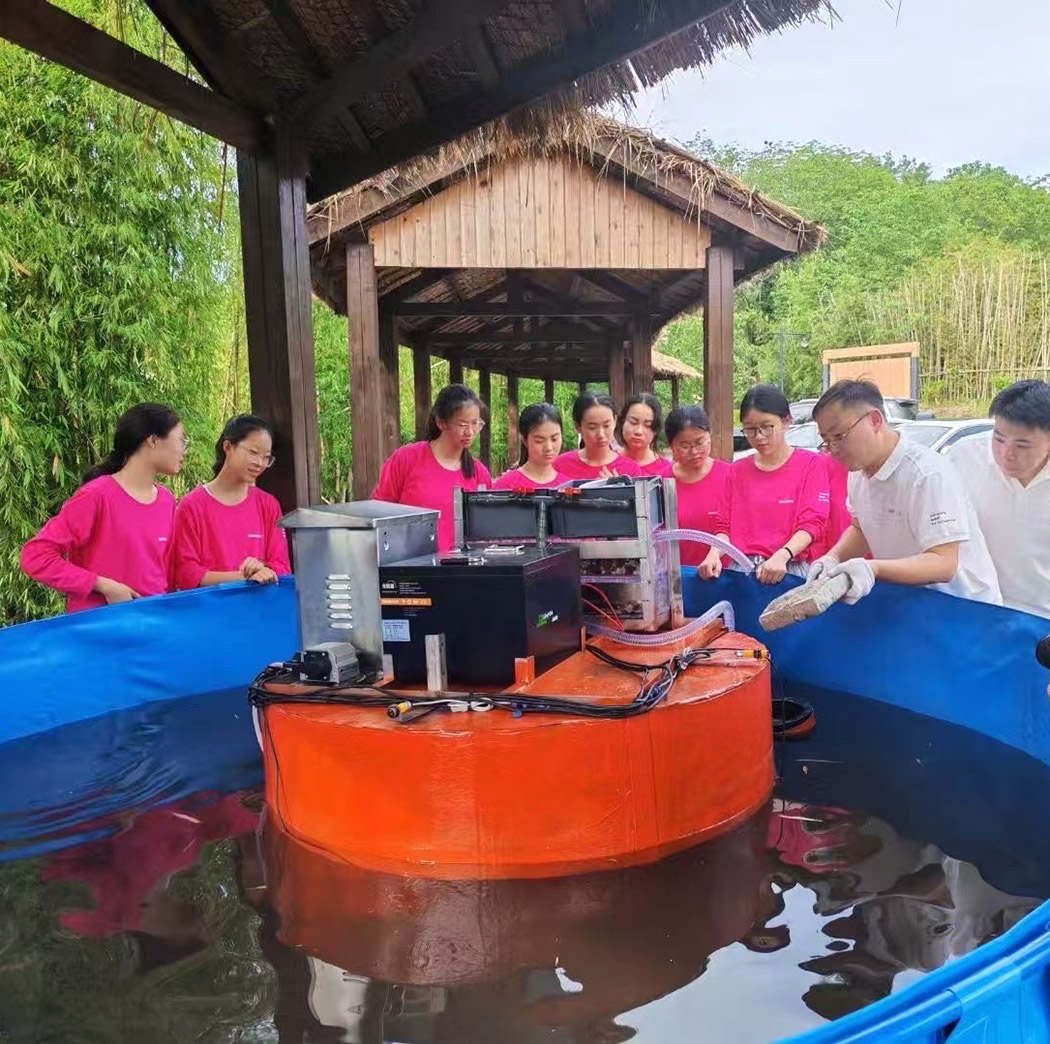Hands-on action gives girls chance to hone skills in problem-solving

An innovative education program is getting more young female students involved with ecological science through hands-on practice and practical problem-solving.
The program, run in collaboration by Samsung China and the China Women's Development Foundation, has been held for the past seven years, and encourages female students to become more active in acquiring technological knowledge and critical thinking.
This year, young girls from Beijing, Yunnan and Sichuan provinces, and the Xinjiang Uygur autonomous region, are taking part, seeking to develop a comprehensive system to accurately measure the environmental health of small ponds.
READ MORE: A heartwarming goal
By one pond in a village in Guang'an city, Sichuan, a group of female middle school students adjusted a floating ecological measuring device fitted with solar panels and sensors, and shaped like a goldfish, on May 3.
Zhou Chuanbin, a researcher from the Center for Ecological and Environmental Sciences at the Chinese Academy of Sciences, watched over this group of girls with an average age of 15.
As an electronic prompt rang out, the students cheered — their self-designed "Pond Health Micro-Clinic" had been officially put into operation.
"While significant progress has been made in managing major rivers and lakes, the small and micro water bodies scattered across urban and rural areas are the 'last mile' in water environment management," said Zhou on choosing pond health as the theme for this year's program.
As a mentor in program, he led dozens of middle school girls in the past six months on a journey of ecological research and practice.
After months of study at the Miyun Science Camp in Beijing and numerous discussions and experiments after school and during holidays, they finally got to toll out their project in Guang'an.
While carrying out research at a sewage plant in Miyun, Qin Ming, a high school freshman from Sichuan Chengdu Shishi Tianfu High School, encountered a foam discharge outlet.
"The textbook says 'black and odorous water bodies have insufficient dissolved oxygen', but seeing the sensor values drop below the critical line in person is a completely different shock," she said.
Beijing middle school student Bai Yunhui vividly recalled her experiments at the Baihe River Wetland Park.
"We used a turbidity meter to differentiate between blue-green algae and silt, realizing that treatment requires more than just filtration; comprehensive biological and chemical controls are needed," Yunhui said.

The students' creativity often "amazes us", said Zhou, showing a video on his phone of Beijing girl Bai Zixi setting up a simple lab at home and testing 17 oil film degrading materials over three months. Du Bin from Xinjiang Corps Senior High School designed a "mechanical fish" plan which, optimized by an engineering team, became an integrated smart floating island with water quality monitoring and filtration functions.
"Sensors are placed in the fish's eyes, purification plants are planted in the fish's tail and an aeration device is placed in the fish's belly — such interdisciplinary thinking is something even adult engineers might not think of," Zhou said.
Implementation of the project was full of challenges. Du said, "Drawing the design diagram made the fish-shaped device look cool, but actually connecting pipes and planting vegetation made me realize the complexities of buoyancy calculations and the stability of solar power supply."
Beijing's Bai Yunhui shared an incident involving "plant rescue". The team mistakenly placed large hydroponic plants in small flowerpots, risking root rot. "Ultimately, we performed surgery-like procedures, cutting the plants in half, watering them daily, and watching them rejuvenate, which was immensely rewarding," she said.

These youth innovations are leading to tangible rural transformations in Gannian village of Guang'an. For three years, the "Xi Xian Beautiful Bathroom" project has recycled urine through turbidity sensors, and the black soldier fly kitchen waste treatment device has turned organic waste into animal protein feed. This year's smart floating island is also planned to apply for utility model patents.
When asked about the project's significance, Zhou looked at the students adjusting the equipment. "It's about nurturing the 'problem-solving' chain of thought."
Data shows that about 30 percent of the students who participated in this program chose to major in environmental fields in college, with some going on to top universities like Yale for further study.
ALSO READ: Rural vitalization efforts reap big success
Although the number of women in STEM-related fields has increased over the past years, women still lack representation and remain outnumbered by men by a significant margin.
Student Qin Ming said: "I used to think technology was just cold data. Now I understand it can be the purifying bubbles emitted from a fish-shaped floating island — it must have both the acuity to solve problems and the warmth to touch hearts."
Zhou Wenbo contributed to this story.
Contact the writer at yandongjie@chinadaily.com.cn


